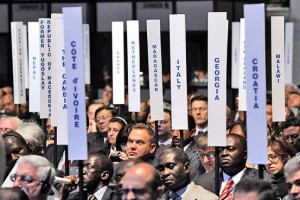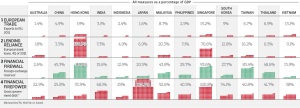According to The Wall Street Journal, MANILA – Once regarded as the “sickman of Asia,” the Philippines has recently undertaken a series of governance reforms that have helped improve its bill of health and convince investors and credit rating agencies to take a fresh look at one of the region’s fastest-growing economies.
President Benigno Aquino III and his economic managers are taking much of the credit for the Philippines current stellar economic performance. They point to efforts to run a clean government and stamp out corruption as the main factors behind the investment-grade ratings awarded to the country this year by all three major international rating agencies.
Last month, following a scandal that sparked widespread protests, three senators and five former lawmakers were charged with corruption for misusing more than $200 million from state coffers – a move seen as part of President Aquino’s battle against graft. Those charged all deny wrongdoing.
Former President Gloria Macapagal-Arroyo, installed after a popular uprising that removed president Joseph Estrada on corruption allegations, is also facing several graft charges and is now in detention.
Now, the government is planning to take its reforms a step further.
Early next month, it will host a two-day “hackathon” with information technology programmers and designers to help spur the development of mobile or computer applications that will improve public services, particularly in the handling of public funds.











